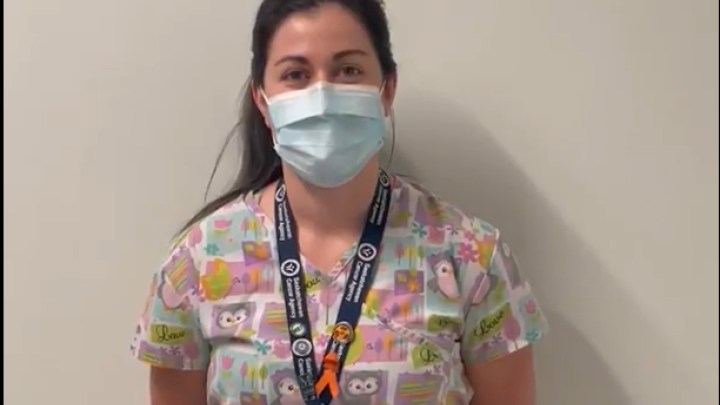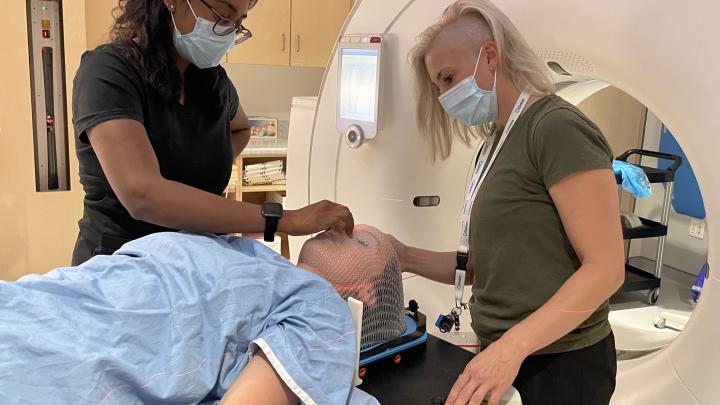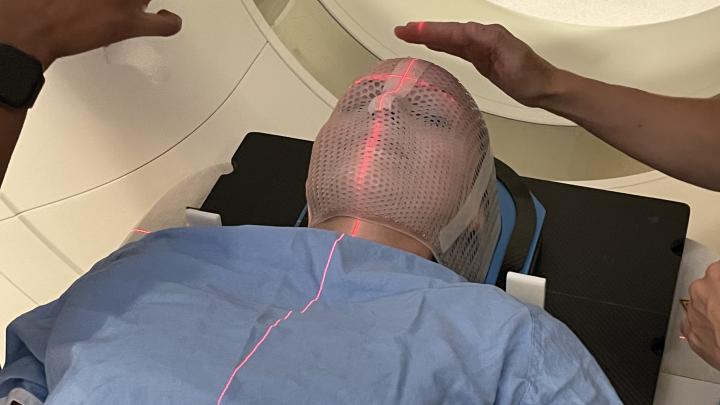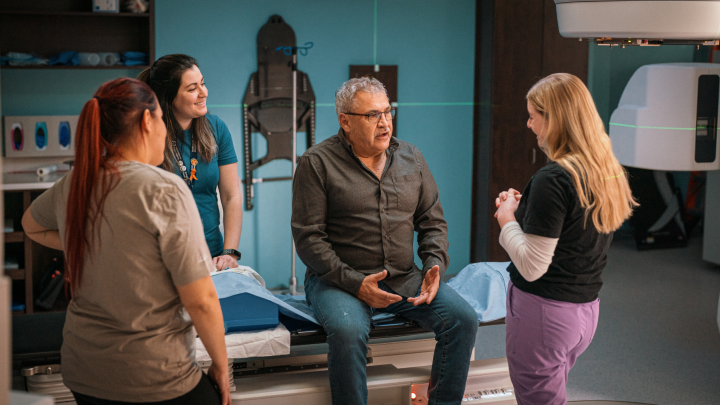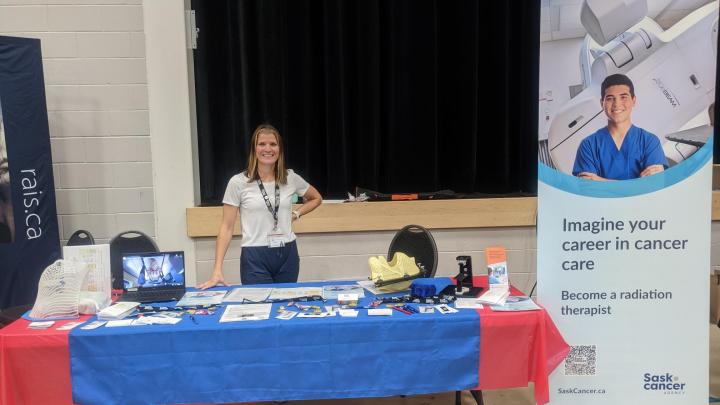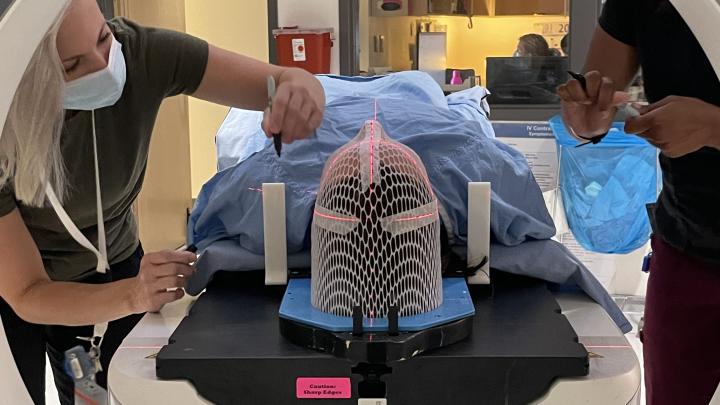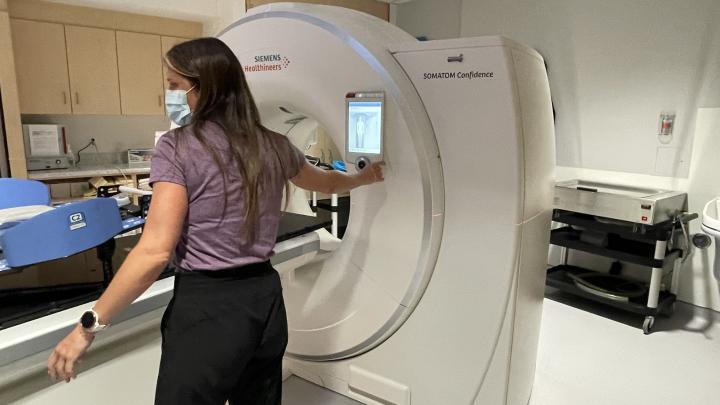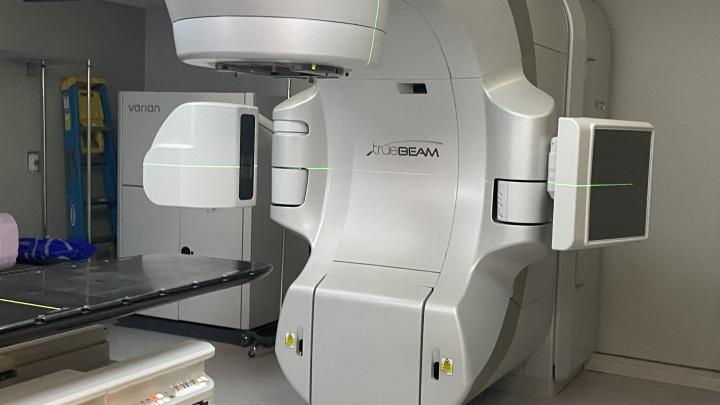Students
The Saskatchewan Cancer Agency has an agreement with the Michener Institute and the University of Toronto to financially sponsor selected Saskatchewan students for the Medical Radiation Sciences (MRS) Program for radiation therapy.
Minimum requirements to be accepted into this three-year bachelor program are:
30 credits of undergraduate university classes with a minimum 2.7 GPA
3 credits in each of the following subjects: human biology, calculus-based mathematics, physics and social science
Financial Sponsorship and How to Apply
If applicants have been offered an interview by the MRS Radiation Therapy Program through Michener, applications to the Cancer Agency for sponsorship are now being accepted.
Please refer to the University of Toronto website, MRS Application Requirements, Deadlines and Procedures. Once offered an interview, Saskatchewan applicants are encouraged to apply for sponsorship from the Saskatchewan Cancer Agency.
More information is available here: MRS Out-of-Province Opportunity.
Preference will be given to Saskatchewan students; however, applicants from other provinces may also be considered. This program is not available to international students.
Please email rtschoolinfo@saskcancer.ca for more information.
Radiation Therapists
Radiation therapists are extremely important members of the health-care team, as they are involved in all aspects of treatment planning, delivery and care of cancer patients receiving radiation therapy.
What is Radiation Therapy?
Radiation therapy is a form of cancer treatment, using radiation with a goal to either cure the patient or manage symptoms. Radiation therapy uses high-energy radiation to damage cancer cells, stopping them from growing and dividing. External radiation uses focused beams of radiation to destroy tumours while minimizing harm to healthy tissues. Individuals may also have internal radiation therapy where radioactive material is implanted directly into or very near a tumour inside the patient.
Who Administers Radiation Therapy?
Radiation therapists are important members of the health-care team in treating cancer. They plan, deliver and provide care and education to people receiving radiation therapy.
What Duties Does a Radiation Therapist Perform?
As members of a team of skilled professional health-care providers, radiation therapists:
- assist radiation oncologists in the planning and delivery of treatment
- explain procedures and answer patients’ concerns and questions
- position the patient and equipment correctly
- ensure that proper radiation handling and protection techniques are followed
- administer radiation treatments, which include monitoring patients during procedures and providing advice on minimizing radiation reactions
- provide emotional support and patient education
- maintain patient records
Who Should Consider a Career in Radiation Therapy?
If you have a good background in the sciences, strong technical skills and the ability to work with care and precision, you should consider radiation therapy as a career. Patience, understanding and tolerance, as well as strong interpersonal and teamwork skills are important qualities to have.
Where Can I Find More Information?
For more information about the program contact us at:
Phone: 306-766-2288
Email: rtschoolinfo@saskcancer.ca
Bursaries for Hard-to-Recruit Positions
The Saskatchewan Cancer Agency Bursary Program is a recruitment initiative to attract new graduates of post-secondary health discipline programs who are qualified for designated hard-to-recruit positions within the Cancer Agency. The program is open between February and March each year. In return for this assistance, a bursary recipient must commit to work at the Cancer Agency.
Eligible hard-to-recruit professions are:
- Medical Dosimetrist
- Oncology Pharmacist
- Oncology Pharmacy Technician
- Physics Technician
- Project Manager
- Radiation Therapist
- Registered Nurse
Eligibility
To be eligible for a Cancer Agency bursary, you must:
Be a Saskatchewan resident and hold a valid Saskatchewan health card.
Be attending an accredited program recognized by the Saskatchewan Cancer Agency in a hard-to-recruit classification.
Be in the final year of your education program.
Not have previously received financial assistance for education in return for service from the Saskatchewan Cancer Agency.
Bursary Amount
Saskatchewan Cancer Agency bursaries are a one-time award of $2,000 per recipient. Bursaries are considered taxable income.
Return-in-Service Requirement
Bursaries are awarded to individuals who sign a Return-in-Service Agreement agreeing to, upon completion of program, provide a one-year full-time return in service to the Cancer Agency in the health profession for which the bursary was provided. Failure to provide the return in service means bursary funds must be repaid at the rate stipulated in the Return-in-Service Agreement. Applicants are asked to indicate a preference to work in a specific location of the Cancer Agency (Regina or Saskatoon). The Cancer Agency will determine placements in Regina or Saskatoon. The Cancer Agency is under no obligation to ensure employment following completion of training.
Application Process
All bursary applications must include the following:
A complete Bursary Application Form below.
A letter from the education program verifying enrolment in the final year of program.
A resume with employment references whom the Cancer Agency may contact to determine eligibility for the Bursary Program.
Applications are closed at this time.
Selection Process
Bursaries are awarded through a selection process. Not all applicants are awarded a bursary. The Cancer Agency will consider each applicant based on organizational needs, available funding, program completion dates, applicant's status as Aboriginal person (First Nations or Métis) in support of representative workforce and preference of return in service location (applicants willing to complete their return in service in either city are more likely to be awarded a bursary). Applicants may be required to submit transcripts and/or attend an interview to assess their eligibility. Applicants will be required to provide, at their own expense, a current satisfactory criminal record check including vulnerable sector check prior to offer of employment.
Videos
Stephanie Mannella, a Radiation Therapy student at The Michener Institute of Education at UHN, shares what inspired her to pursue a career in health care.
Annamaria came here for a short-term contract and ended up staying.
Photos
